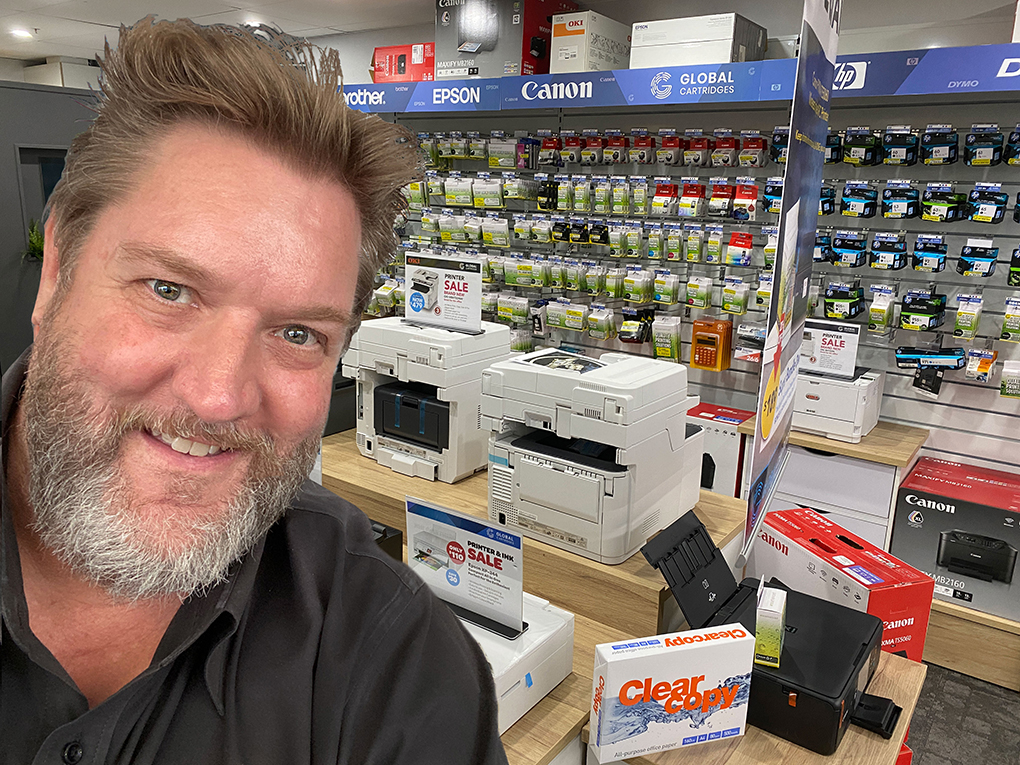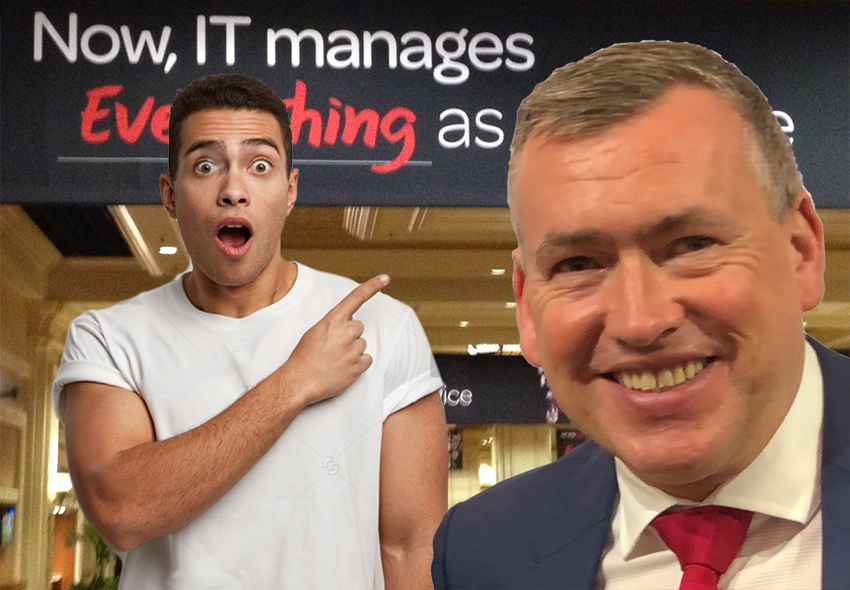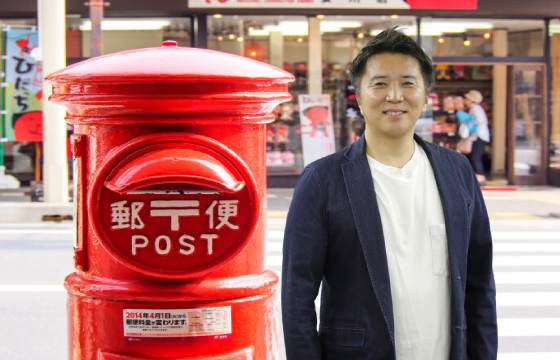Short Term Gain for Long Term Pain
Short Term Gain for Long Term Pain
 Are you cutting your own throat?
Are you cutting your own throat?
Cut the bull. It’s just us talking here. Be honest about your business and the way you make decisions. Are you just ‘talking the talk’ or are you ‘walking the walk’ when it comes to quality products?
A lot of talkers, like to think or claim they deal with quality products. In my travels, I see a lot of talkers and not many walkers. The walkers are more profitable and have good long term businesses. Talkers don’t last as long and either close, sell or never reach their full potential. Worse still, while they hang around, they damage the aftermarket.
Over the last 40 years, I have dealt with a lot of retailers and I know that the ones that are honest with their customers offer the best products. They are not only more confident, they feel better about their day-to-day activities and tend to have much more successful, valuable, long term businesses. The image projected at the shop counter can make the difference between a good store and a superstar store, but it all comes down to the user experience when the customer hits the print button.
No matter how good a salesperson you are or think you are, the customer makes the final decision and there is no getting around how the product performs in forming that decision to buy again or not.
The industry problem we all face comes from customers who are burnt by a poor performing product. They were told, “It’s just as good as the original.” They tend to think all aftermarket product is poor.
The retailer ultimately controls how the public views the aftermarket. If you sell lower quality products with higher failure rates because your buy price is a bit lower from another supplier then you are damaging sales for everyone. YOU GET WHAT YOU PAY FOR!
There is only one way that I know of to get better prices on quality products, and that is higher volumes. That goes for retailers and wholesalers. Either you buy more and get a better price based on increased volumes or you choose to buy a lower quality build cartridge and get a better price.
It was interesting to note the general reaction to a recent price drop on cartridges from a supplier here in Australia. A store owner recently said to me, “We are not stupid. They have either just dropped the quality of the cartridges, or they have been selling us cheap cartridges all along and gouging us on the price.” An increase in the failure rate was a good indicator as to what was really going on.
It is a cold reality that if retailers choose to buy and stock cheaper cartridges, then their distributors are forced to supply cheaper cartridges. The downward spiral is hard to break. Retailers should support and demand the best.
 Don’t get me wrong, I think there is a place for a cheap product. However, you need to be honest about what you are offering and not pass it off as a premium product or equal to the OEM standard. I see no issue in educating customers that complain that you are more expensive than another retailer. You recommend a particular product because it is the best, however, if they want a cheaper product you can offer then something different. This is the only way to compare “apples with apples.”
Don’t get me wrong, I think there is a place for a cheap product. However, you need to be honest about what you are offering and not pass it off as a premium product or equal to the OEM standard. I see no issue in educating customers that complain that you are more expensive than another retailer. You recommend a particular product because it is the best, however, if they want a cheaper product you can offer then something different. This is the only way to compare “apples with apples.”
In this way, the customer can make an educated choice about the quality they prefer. If they choose a cheaper product and they do have a problem later on with it they will not necessarily go back to the more expensive OEM. They will know that by spending a little more they can get a better quality product and still not have to buy the OEM product. And it will create customer loyalty at the same time.
No retailer is going to say, “Our quality is the worst.” They will not say, “We sell cheap cartridges with a high failure rate.”
As you know, every reseller says, “My cartridges are top quality.” Even those selling the cheap, low-quality cartridges. They all say they are the best.
Deep down, do you know, I mean do you really know that you are sourcing the best possible cartridges or are you tempted on price when offered a toner at a few dollars less.
If you are tempted to source and take a cheaper toner then you have become a “talker.” You have to “talk” up the quality. Are you really being honest with your customers?
Repeat sales are key to long term success
I have seen countless salespeople get red hot sales results but if they are selling a cheap, unstable product they will leave in a flash.
Customers are not stupid, they hear the talk and just walk. Walk away to another supplier never to be seen by you again. Perception is then set, and the decline in sales starts to erode the business.
Let’s be realistic. You have a brick-and-mortar store and there is a finite number of regular customers that potentially will come into your store in any given territory. You need to hold onto as many of those customers for a repeat sale as possible. To do that you need to minimize the chance that the customer has any issues. Best case is that the customer is so happy with the print experience you supplied, they recommend you to others. That multiplier effect is the target. Is it really worth the risk of buying a cheaper toner from a supplier to potentially lose some customers from that finite customer pool?
Think about the long-term big picture. Who is your ideal customer? What do they want? What do they need? Once you have that sorted out, examine your business and check to see if you have the products and services in place to become the go-to source for those customers—not for the here-and-now but for years to come. Does buying ink and toner for a few dollars less than the best serve your long term business objectives?
My ideal customer is someone that cares about quality and service first. Those customers are more loyal and stable. It’s a hard area for a competitor to attack. There will always be someone else selling cheaper products. That market segment is crowded and the only point of difference is the price. They don’t have the best products, so the price is the only way to compete.
Some customers will be enticed to go off and buy lower quality goods. Many will come back. The issue is, fewer come back. I am sure the store owner did not appreciate the long term business risk when he thought, “Gee I can save a little on my buy price.” Short term gain for long term pain.
Store owners often tell me their customers only want OEM products because they had a bad experience with the aftermarket. More OEM equals less margin and lower loyalty. Treat the ideal customers like precious gems because, just like diamonds, they are rare and hard to find. Price-based customers are common but still important, however, they are more unstable and will always be pushing for lower prices.
Winning a sale on price is easy, winning a sale on print quality, greater page yield and value for money is harder but generally wins you a better, more loyal long term customer.
Offering a value proposition will win long term business for you. If a cartridge does not work, price is irrelevant.
 James Douglas is an award-winning entrepreneur based in Sydney and has become a trusted supplier of imaging components and products and advisor for retailers business across Australia. He is a recipient of the Excellent Service Award for his tireless efforts in personally driving to visit, train and mentor each and every one of his customers, providing them with dedicated support to remanufacture and sell high quality, non-infringing aftermarket supplies to their customers.
James Douglas is an award-winning entrepreneur based in Sydney and has become a trusted supplier of imaging components and products and advisor for retailers business across Australia. He is a recipient of the Excellent Service Award for his tireless efforts in personally driving to visit, train and mentor each and every one of his customers, providing them with dedicated support to remanufacture and sell high quality, non-infringing aftermarket supplies to their customers.
Douglas invites you to chat with him about your business, reaching out to him on LinkedIn, email, on the phone +61-408-52-63-73, on Skype at JamesKADouglas or online at www.adcon.net.au
Please add your comments below about James’ post, “Short term gain for long term pain” or go to LinkedIn and join the social media conversation about the short term gain for long term pain in business.












Leave a Comment
Want to join the discussion?Feel free to contribute!